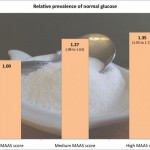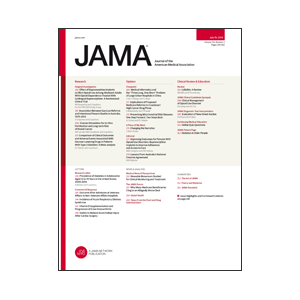Research Shows Why Low Vitamin D Raises Heart Disease Risks in Diabetics
Low levels of vitamin D are known to nearly double the risk of cardiovascular disease in patients with diabetes, and researchers now think they know why.
Eating Processed Meats, But Not Unprocessed Red Meats, May Raise Risk of Heart Disease...
Researchers have found that eating processed meat, such as bacon, sausage or processed deli meats, was associated with a 42% higher risk of heart disease and a 19% higher risk of type 2 diabetes.
Traffic Noise Increases the Risk of Having a Stroke
Exposure to noise from road traffic can increase the risk of stroke, particularly in those aged 65 years and over.
Half of Women with Cardiac Arrest Get Wrong Treatment
A stunning 50-percent of the heart failure cases among women are caused by having a heart attack, which can be treated with modern methods.
Obesity Has Doubled Since 1980, Major Global Analysis of Risk Factors Reveals
The worldwide prevalence of obesity has nearly doubled since 1980, according to a major study on how three important heart disease risk factors have changed across the world over the last three decades.
Walking Restores Vascular Health Damaged by Prolonged Sitting
Vascular function is impaired when a person sits for hours, but walking after a prolonged period of sitting can restore vascular health. Learn more...
Risk of Stroke Doubles if Diagnosed with Type 2 Diabetes
Individuals diagnosed with Type 2 diabetes are at double the risk of having a stroke compared to those without diabetes, according to new research.
Genes Play a Role in Heart Function, May Determine Who Develops Heart Failure
Genes play a significant role in heart function, and may partly determine who develops the most common form of heart failure.
Fruits and Vegetables Overlooked by Healing Heart Patients
Even after a heart attack or bypass operation, some cardiac patients say no to beneficial fruits and vegetables as well as obviously harmful dietary fat.
Does Everyday Mindfulness Lead to Healthy Glucose Levels?
Does everyday mindfulness lead to better health? A new study from Brown University looked into the connection between higher mindfulness and healthier glucose levels. ...
Diabetes Appears to Increase Risk of Death for Patients With Acute Coronary Syndromes
Individuals with diabetes and acute coronary syndromes (ACS) such as a heart attack or unstable angina have an increased risk of death at 30 days and one year after ACS, compared with ACS patients without diabetes.
Cholesterol-Lowering Drugs May Help Prevent Stroke Recurrence
People who take cholesterol-lowering drugs called statins after a stroke may be less likely to have another stroke later.
Higher Risk of Developing Atherosclerosis Among Diabetic Men with Low Testosterone
Men who have low testosterone and Type 2 diabetes face a greater risk of developing atherosclerosis - a condition where plaque builds up in the arteries - than men who have diabetes and normal testosterone levels.
Vitamin D-Fortified Yogurt Improves Cholesterol Levels and Heart Disease for Diabetics
People with diabetes are known to have an increased risk of heart disease. New research shows that regular consumption of a vitamin D-fortified yoghurt drink improves cholesterol levels and biomarkers of endothelial dysfunction, a precursor of heart disease, in diabetics.
Diabetic Patients at Risk From Even Mild Coronary Artery Disease
According to a new long-term study, diabetic patients with even mild coronary artery disease face the same relative risk for a heart attack or other major adverse heart events as diabetics with serious single-vessel obstructive disease.
Antioxidants, Blood Sugar, Type 2 Diabetes, Red Wine, Tea, Polyphenolics
Food scientists have found that certain antioxidants found in red wine and tea may help regulate the blood sugar of people with type 2 diabetes by inhibiting the action of alpha-glucosidase that controls the absorption of glucose from the small intestine, and protect the body from complications such as high blood pressure and heart disease.








